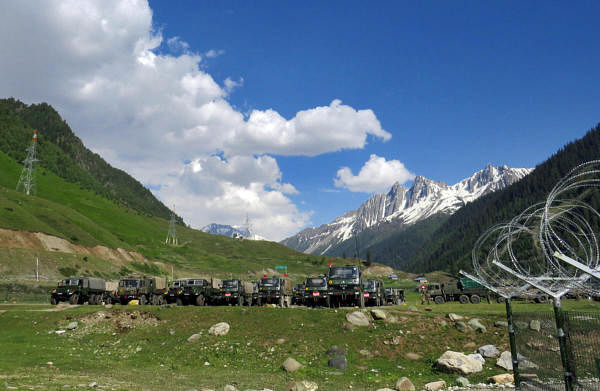
As yet another high-level meeting of the military leaders in eastern Ladakh continued late in the night on Monday, Army Chief Gen M M Naravane met all his top commanders in Delhi for an emergency review of the tense situation prevailing at the China and Pakistan borders.
As the situation along the 3,488 km long disputed boundary between India and China remains tense, Gen Naravane called an emergency meeting of its commanders to take stock of the situation on the northern and western front.
The senior military leaders were also appraised of the changes in the rules of engagement with the PLA troops in which local commanders had been empowered to give a “befitting reply” to the Chinese troops, sources said.
“An Army Commanders Conference is being conducted on June 22-23, 2020 to review the operational situation on both the Northern and Western fronts,” said an Army officer.
The high-level meeting comes within a month of the regular commanders conference that took place in May. This is an unusual meeting because typically such commanders' conferences do not discuss operational issues.
A week after the bloody clash at Galwan valley in eastern Ladakh that led to killing of 20 Indian soldiers, senior military leaders from both sides met at Moldo (opposite to Chushul in eastern Ladakh) to thrash out a road map to end the crisis at the Galwan Valley and Hot Spring areas.
The meeting between Lt Gen Harinder Singh, General Officer Commanding-in-Chief of Leh-based 14 Corps from the Indian side and Maj Gen Liu Lin, Commander, South Xinjiang Military region began around 11.30 AM. In the meeting, the Chinese side admitted the death of one of its officers in the clash.
Once the meeting is over, Lt Gen Singh would debrief the Northern Army Commander Lt Gen Y K Joshi and Gen Naravane. Subsequently, the outcome of the meeting would be debated within the government before a call is taken on releasing information to the media.
On June 6, Lt Gen Singh and Maj Gen Liu held another marathon meeting to find a way out to end the one and half month long face-off in eastern Ladakh.
But that meeting was followed by a violent clash between the Indian and Chinese troops at Galwan Valley, the worst cross-border violence in 45 years, as the People's Liberation Army troops did not follow the agreed road map and breached several agreements by attacking the Indian troops as they removed a make-shift observation post installed on the Indian territory.
The bloody battle frayed ties between the two countries, with Prime Minister Narendra Modi sending a strong message to China that “India wants peace but if provoked, India is capable of giving a befitting reply”.
